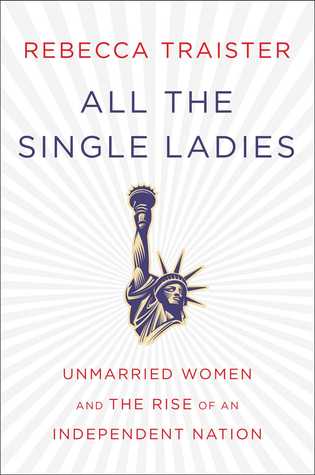 Despite all those engagement pictures you’re inundated with on Facebook are telling you, marriage rates in America are slowing down. According to the U.S. Census, the proportion of married adults is dropping and for the first time, single women outnumber their married counterparts.
Despite all those engagement pictures you’re inundated with on Facebook are telling you, marriage rates in America are slowing down. According to the U.S. Census, the proportion of married adults is dropping and for the first time, single women outnumber their married counterparts.
Author Rebecca Traister argues that these unmarried women are a revolutionary force, changing our definitions of love and family, and pushing the political conversation to the left. “Women…perhaps especially those who have lived untethered from the energy-sucking and identity-sapping institution of marriage in its older forms, have helped driving the social progress of this country since its founding.” Her book, All the Single Ladies: Unmarried Women and the Rise of an Independent Nation explores the sexual, economic and emotional lives of this growing American demographic.
Unmarried women are not a new phenomenon. Traister explores the role of single women throughout modern history. They were crucial to the abolitionist and feminist movements. Some were activists, writers and thinkers. They were also ridiculed, ostracized and often pushed into unfulfilling marriages for security and social acceptance. Traiser quotes from some of Charlotte Bronte’s letters to a friend after getting married at 38, partially to provide financial security for her father. “It is a solemn and strange and perilous thing for a woman to become a wife.”
Now, largely in thanks to the women who came before us, the stakes aren’t as high. We’re able to work and own property and get bank loans without a husband signing off on it (hooray). Thanks to contraceptives and IVF, we’re more in control about if and when we start a family. According to Traister, the declining marriage rates are less about the institution of marriage and more about the choices available to women today.
Traister interviewed about 100 women to examine how delaying or abstaining from marriage could affect women’s lives. Crucially, she discusses race and class in addition to gender, and interviews women who are poor and/or nonwhite (she could have devoted more time to the experiences of LGBTQ women, though). She interviewed (a few) women with conservative leanings, including those who were abstaining from premarital sex. Some “single” women she spoke with had longtime partners and just chose not to marry. Some didn’t have any romantic relationships. Among other subjects, these women talk about loneliness, fears, independence, the value of female friendships, single motherhood, and careers, creating a diverse and nuanced look at single life in America.
I enjoyed this book, but it didn’t grip me-maybe because there was nothing in it that felt particularly groundbreaking to me. While Traister’s book about the 2008 election, the fantastic Big Girls Don’t Cry enraged and inspired the college-aged, baby feminist me, a lot of this book felt like old news. That’s not to say this book wasn’t good, but most of it felt anecdotally familiar. Most of my friends aren’t married. I’m not married. I probably could have gotten married by now, but I didn’t want to get hitched until I got certain shit done. Independence is important to me. Career is important to me. My close female relationships are important to me. Some of us are in serious relationships, some are on Tindr; some want kids, some want cats. Most of my female friends are not freaking out because they’re in their late twenties and unmarried. And yeah, most of us do get certain shit about that from older people (*actual things old people have said to me*: “Don’t you hear a clock ticking?” “No man is perfect” and my personal favorite “Don’t you think your standards are a little too high?”) but fuck them, their opinions have no value to me.
I would still recommend this book, especially to people who are just getting interested in women’s studies. Traister is a thought-provoking and informative writer, and her book is chock full of interesting interviews and anecdotes. But I found myself craving less choir-preaching and more analysis from this book. I think I’ll just reread her last book instead.
